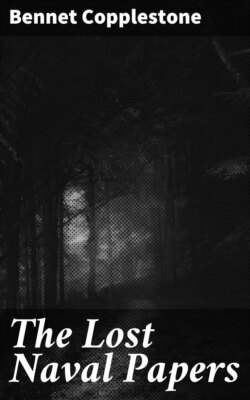Читать книгу The Lost Naval Papers - Bennet Copplestone - Страница 5
На сайте Литреса книга снята с продажи.
A STORY AND A VISIT
ОглавлениеAt the beginning of the month of September, 1916, there appeared in the Cornhill Magazine a story entitled "The Lost Naval Papers." I had told this story at second hand, for the incidents had not occurred within my personal experience. One of the principals—to whom I had allotted the temporary name of Richard Cary—was an intimate friend, but I had never met the Scotland Yard officer whom I called William Dawson, and was not at all anxious to make his official acquaintance. To me he then seemed an inhuman, icy-blooded "sleuth," a being of great national importance, but repulsive and dangerous as an associate. Yet by a turn of Fortune's wheel I came not only to know William Dawson, but to work with him, and almost to like him. His penetrative efficiency compelled one's admiration, and his unconcealed vanity showed that he did not stand wholly outside the human family. Yet I never felt safe with Dawson. In his presence, and when I knew that somewhere round the corner he was carrying on his mysterious investigations, I was perpetually apprehensive of his hand upon my shoulder and his bracelets upon my wrists. I was unconscious of crime, but the Defence of the Realm Regulations—which are to Dawson a new fount of wisdom and power—create so many fresh offences every week that it is difficult for the most timidly loyal of citizens to keep his innocency up to date. I have doubtless trespassed many times, for I have Dawson's assurance that my present freedom is due solely to his reprehensible softness towards me. Whenever I have showed independence of spirit—of which, God knows, I have little in these days—Dawson would pull out his terrible red volumes of ever-expanding Regulations and make notes of my committed crimes. The Act itself could be printed on a sheet of notepaper, but it has given birth to a whole library of Regulations. Thus he bent me to his will as he had my poor friend Richard Cary.
The mills of Scotland Yard grind slowly, yet they grind exceeding small. There is nothing showy about them. They work by system, not by inspiration. Though Dawson was not specially intelligent—in some respects almost stupid—he was dreadfully, terrifyingly efficient, because he was part of the slowly grinding Scotland Yard machine.
As this book properly begins with my published story of "The Lost Naval Papers," I will reprint it here exactly as it was written for the readers of the Cornhill Magazine in September, 1916.
* * * * *
